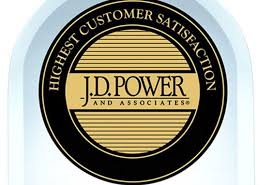Think of the word “pharmacy,” and what names come to your mind? CVS Health, Walgreens, Rite-Aid, perhaps.
But it’s Wegmans who’s #1 across all pharmacy brands and types, according to the 2015 J.D. Power Pharmacy Study. The big improvement in pharmacy satisfaction in 2015 has been among supermarket drug stores, up to an index score of 851 (of 1,000), the highest consumer score. The satisfaction score for chain pharmacies increased a small 2 points, whereas satisfaction for two other channels for pharmacies — mass merchandisers and mail order — both fell from 2014.
It may come as no surprise to Health Populi readers that Wegmans supermarket pharmacy is #1 among the grocery drug stores. (Health Populi is an unabashed, unapologetic fan of Wegmans as a health destination, discussed here).
The J.D. Power study gauges U.S. consumers’ views on bricks-and-mortar pharmacies — in chain drug stores, mass merchandisers and supermarkets—as well as mail order pharmacies.
 Key findings from the study include the following:
Key findings from the study include the following:
- Among customers who use health testing and wellness services at their pharmacy, 63% indicate they “definitely will” recommend their pharmacy and 46% “strongly agree they feel loyal to their pharmacy”
- Among customers who do not use health testing and wellness services at the pharmacy, only 55% “definitely will” recommend their pharmacy and 37% “strongly agree they feel loyal to their pharmacy”
- Offering health services can increase purchases of non-prescription items: 60% of consumers who use these services buy other merchandise at the pharmacy, while only 37% of patrons who don’t use health services do so.
 Health Populi’s Hot Points: Two takeaways from J.D. Power’s 2015 pharmacy study illustrate the growing DIY nature of healthcare, morphing toward health, and with the growing connection of food-as-medicine. First, the supermarket-based pharmacies earned the highest consumer satisfaction scores across all categories of retail pharmacy channels. Second, consumers who use health testing and wellness services in their pharmacies spend more on merchandise compared with store patrons who do not take advantage of pharmacy health services (beyond the pill).
Health Populi’s Hot Points: Two takeaways from J.D. Power’s 2015 pharmacy study illustrate the growing DIY nature of healthcare, morphing toward health, and with the growing connection of food-as-medicine. First, the supermarket-based pharmacies earned the highest consumer satisfaction scores across all categories of retail pharmacy channels. Second, consumers who use health testing and wellness services in their pharmacies spend more on merchandise compared with store patrons who do not take advantage of pharmacy health services (beyond the pill).
Thus, consumers who use grocery store pharmacies are more intense users of the store for health-oriented goods. Furthermore, these folks feel “more loyal” to “their” pharmacy.
Wegmans, along with other grocery chains, have connected the dots between health, wellness, food, and now providing health services. Mass market retailers like Costco, Target and Walmart have the opportunity to do the same, and will be doing so. Note that CVS Health purchased Target’s pharmacies and will be operating them ongoing.
The interesting data finding is Walmart, rated lowest among those surveyed for mass merchants — falling below Target (#1 on this roster), Sam’s Club (Walmart’s family company), Meijer (prominent in the midwest), Kmart, Costco, and Shopko. In J.D. Power’s “Power Circle” ratings, Walmart earns a low 2 circles versus Target’s and Wegmans’ five circles — the maximum consumer sat grade.
Walmart will continue to grow as a health destination, so the J.D. Power survey will give the company an objective to work toward: becoming more consumer-valued as a channel for prescription drugs. In so doing, the retail behemoth could generate more sales in the front of the store, too.





 As a proud Big Ten alum, I'm thrilled to be invited to
As a proud Big Ten alum, I'm thrilled to be invited to  I was so grateful and joy-ful to join my long-time brother mischief-maker Matthew Holt and three other old health care leader friends on the Health Care Blog Gang webcast, #Election2024 (and Halloween!) edition. We covered a lot of ground as Matthew always does, with a special brainstorm about the very momentous election just a few days before November 5, 2024.
I was so grateful and joy-ful to join my long-time brother mischief-maker Matthew Holt and three other old health care leader friends on the Health Care Blog Gang webcast, #Election2024 (and Halloween!) edition. We covered a lot of ground as Matthew always does, with a special brainstorm about the very momentous election just a few days before November 5, 2024. I was invited to be a Judge for the upcoming CES 2025 Innovation Awards in the category of digital health and connected fitness. So grateful to be part of this annual effort to identify the best in consumer-facing health solutions for self-care, condition management, and family well-being. Thank you, CTA!
I was invited to be a Judge for the upcoming CES 2025 Innovation Awards in the category of digital health and connected fitness. So grateful to be part of this annual effort to identify the best in consumer-facing health solutions for self-care, condition management, and family well-being. Thank you, CTA!